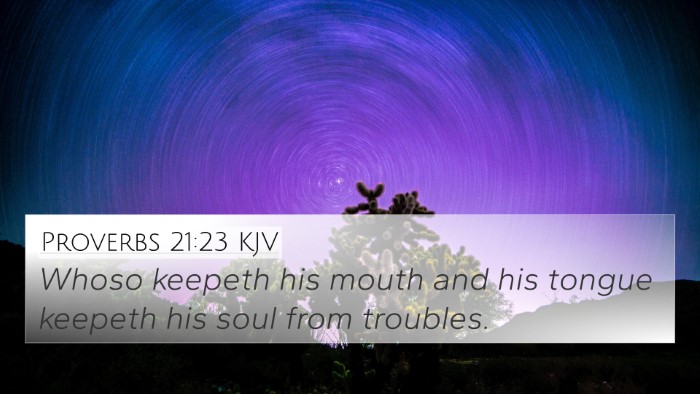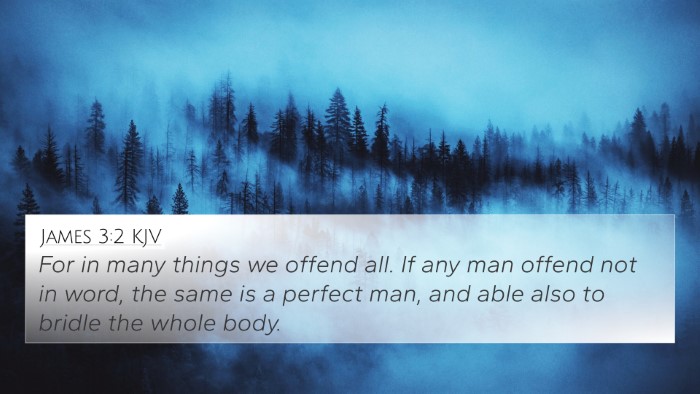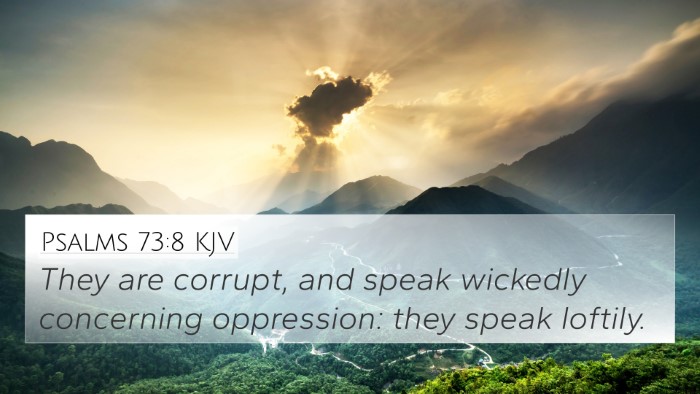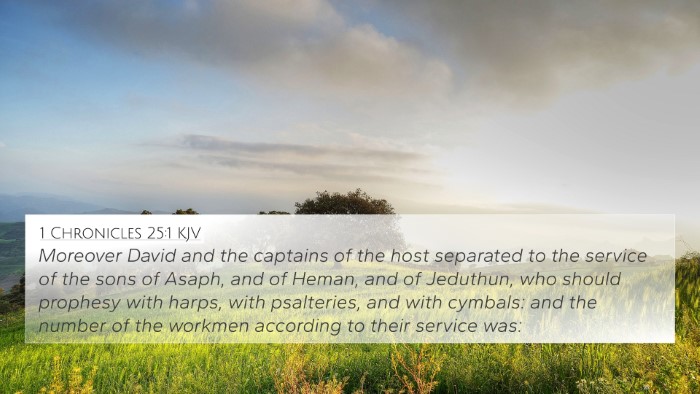Understanding Psalms 39:1
Bible Verse: Psalms 39:1 - "I said, I will take heed to my ways, that I sin not with my tongue: I will keep my mouth with a bridle, while the wicked is before me."
Overview of the Verse
This verse presents a profound introspection on the use of speech and the importance of self-control. The psalmist expresses a conscious decision to regulate his words and behavior, especially in the presence of the wicked. This reflection highlights the theme of mindfulness in communication and the moral obligation to guard one's speech.
Commentary Insights
-
Matthew Henry's Commentary:
Henry emphasizes the necessity of watchfulness in one’s conduct, particularly regarding speech. The psalmist shows a commitment to avoid sin through careful consideration of words, recognizing the power of the tongue in influencing righteousness and integrity.
-
Albert Barnes' Notes:
Barnes interprets this verse as a pledge to silence in the face of provocation. He elaborates on the idea that restraint in speech can be a powerful demonstration of faith and patience, especially when surrounded by ungodliness. It’s about choosing to keep a bridle on one’s mouth in challenging situations.
-
Adam Clarke's Commentary:
Clarke provides insight into the practical application of this verse, explaining that the psalmist’s intention is to maintain integrity through self-discipline in speech. He discusses the broader implications of this verse in the context of personal and communal holiness.
Thematic Connections
Psalms 39:1 invites readers to explore several overarching biblical themes:
- The Importance of Self-Control: This theme resonates throughout the Bible, as seen in Proverbs 21:23 and James 1:19-20, where controlling one's speech and responses is highly valued.
- Seeking Righteousness: The psalmist's desire not to sin connects to the broader biblical narrative found in Matthew 5:6, where righteousness is sought after as a core virtue.
- The Power of Words: The Bible frequently discusses the implications of our speech. See Proverbs 18:21 and Ephesians 4:29, which highlight how words can bring life or death.
- Reflection in the Presence of Others: The awareness of behavior when around people with questionable morals is echoed in 1 Corinthians 15:33, which warns about the influence of bad company.
- Mindfulness and Accountability: This concept reflects back to Colossians 4:6, emphasizing the need for our words to be gracious and seasoned with salt.
Bible Verse Cross-References
Here are several Bible verses that relate to the main ideas expressed in Psalms 39:1:
- Proverbs 13:3 - "He who guards his mouth preserves his life, but he who opens wide his lips shall have destruction."
- James 3:2 - "For we all stumble in many things. If anyone does not stumble in word, he is a perfect man, able also to bridle the whole body."
- Proverbs 10:19 - "In the multitude of words sin is not lacking, but he who restrains his lips is wise."
- Proverbs 15:28 - "The heart of the righteous studies how to answer, but the mouth of the wicked pours forth evil."
- Matthew 12:36-37 - "But I say to you that for every idle word men may speak, they will give account of it in the day of judgment."
- Proverbs 21:23 - "Whoever guards his mouth and tongue keeps his soul from troubles."
- 1 Peter 3:10 - "For 'He who would love life and see good days, let him refrain his tongue from evil, and his lips from speaking deceit.'
Applying the Insights
For those seeking to understand the connections between Bible verses and themes, tools for Bible cross-referencing can be invaluable. Utilizing a bible concordance or bible cross-reference guide allows deeper exploration of related scriptures and comprehensive studies on themes such as self-control, the impact of speech, and moral integrity.
Conclusion
The meditations of Psalms 39:1 remind us of the importance of mindfulness in our speech and behavior, particularly in challenging environments. Through cross-referencing various Bible texts, one can further develop an understanding of how interconnected biblical wisdom is, providing a rich narrative on living righteously and thoughtfully.























